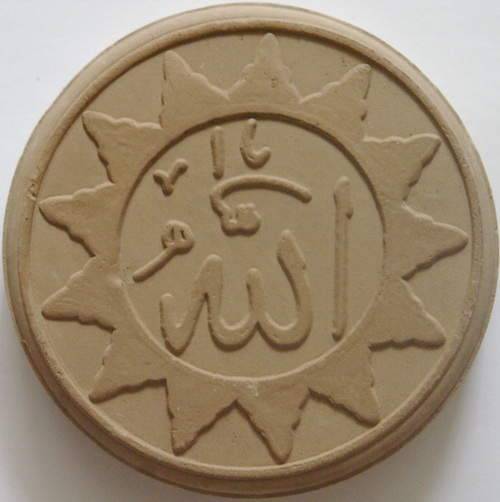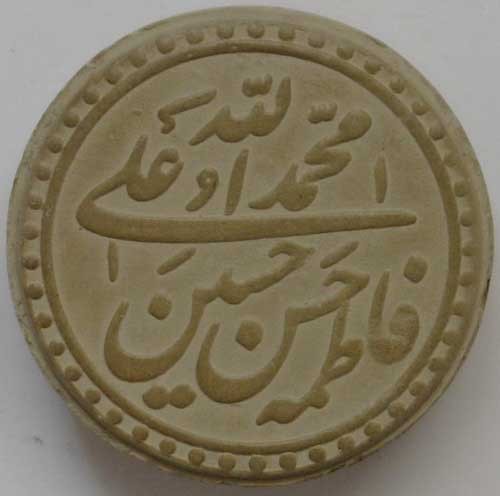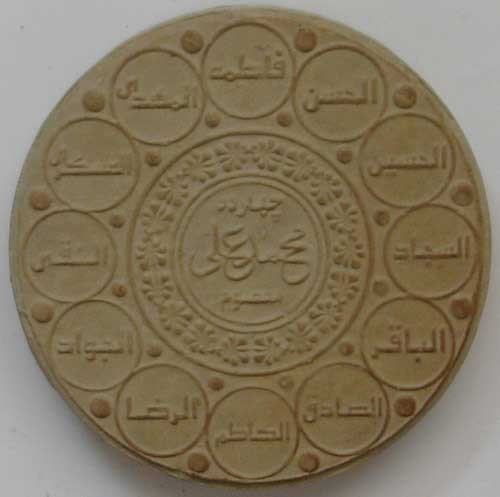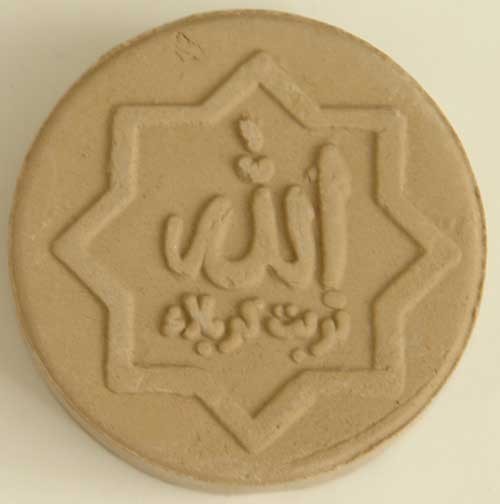Description
Shia Muslims have to use MOHR or Turbah in their Prayers called SALAT or NAMAZ. The most beloved Mohrs are those coming from Karbala in Iraq & then those from Mashhad & Qum in Iran.
Although all Shia Muslim Missionaries insist that Salat or Namaz must be practised using a Turbah, non of them supply this important item for this important duty of a muslim.
Meanwhile, due to the designs & artwork of the Turbahs, many collectors worldwide collect them.
Turbah
A turbah (Arabic تربة) is a small piece of soil or clay, often a clay tablet, optionally used by some Shia schools. during the daily prayers (Salat). It symbolizes earth. While use of a turbah is not compulsory, it is highly recommended and many Hadith mention the benefits of prostration (Sajda) upon the soil of the earth or an alternative material. The most favoured soil is that of Karbala, the site of the martyrdom of Imam Husayn; however, soil from anywhere may be used. In the absence of soil, plants or items made from plants may be substituted. This provision has been extended to include the use of paper.
Following the instruction from the Qur’an, Shi’ah Ja’fari stated that “prostration must be performed on pure earth or what grows on it, provided that it is not eaten or worn.” For example, prostration on paper is permissible because it is made of natural elements grown on earth. Although it is not required of a person to prostrate on a turbah during prayer, many Muslims prefer to use one because it demonstrates their concern for the cleanliness of their bodies, clothes, and the place in which they pray, hence the production of the portable turbahs.
Mohammed and the use of the turbah
According to Abu Sa`id al-Khudri: “I saw Allah’s Apostle prostrating in mud and water and saw the marl of mud on his forehead.” Though Mohammed prayed on the ground, the hadith Sahih al-Bukhari states that “Allah’s Apostle used to pray on Khumra.”
The idea of “absolute consideration” states that some kinds of soil, and thus some kinds of places are better than others for prayer. For example, places, buildings, and structures related to Allah and Mohammed are held in the highest regard when it comes to places in which to hold prayer, but praying in places such as garbage dumps, slaughter-houses, highways, and toilets is prohibited.
Significance of Karbala
Karbala is especially important to Shi’ah Muslims because the martrydom of Husayn ibn Ali is considered one of the major dividing lines between Muslims of the time. Husayn is important because of his relationship with the Prophet himself, and so therefore the dust from Karbala is considered to be one of the most sacred places to pray.
Since there are Muslims located all over the world, Shi’ah Muslims have created small clay tablets called mohr or Turbah from the ground of Karbala. However, since it is an issue of honor and respect, Muslims are allowed to prostrate on other earthen materials.
Turbah’s meanings
Turbah has a primary meaning of dirt, earth or soil, but:
—Turbah is also designated as being the material God used to create the earth and humankind.
—Turbah is the ground on which one prostrates oneself for prayer. Additionally, clean dirt or dust can serve as a substitute for someone who is performing ablutions in the absence of clean water. The use of turbah in this process is known as tayammum.
Turbah is also used in connection with funerals because of death’s association with dust—a dead body eventually turns to earth after death.
—Turba or Türbe in Turkish is a term that refers to an Islamic funerary building in a variety of contexts.




Reviews
There are no reviews yet.